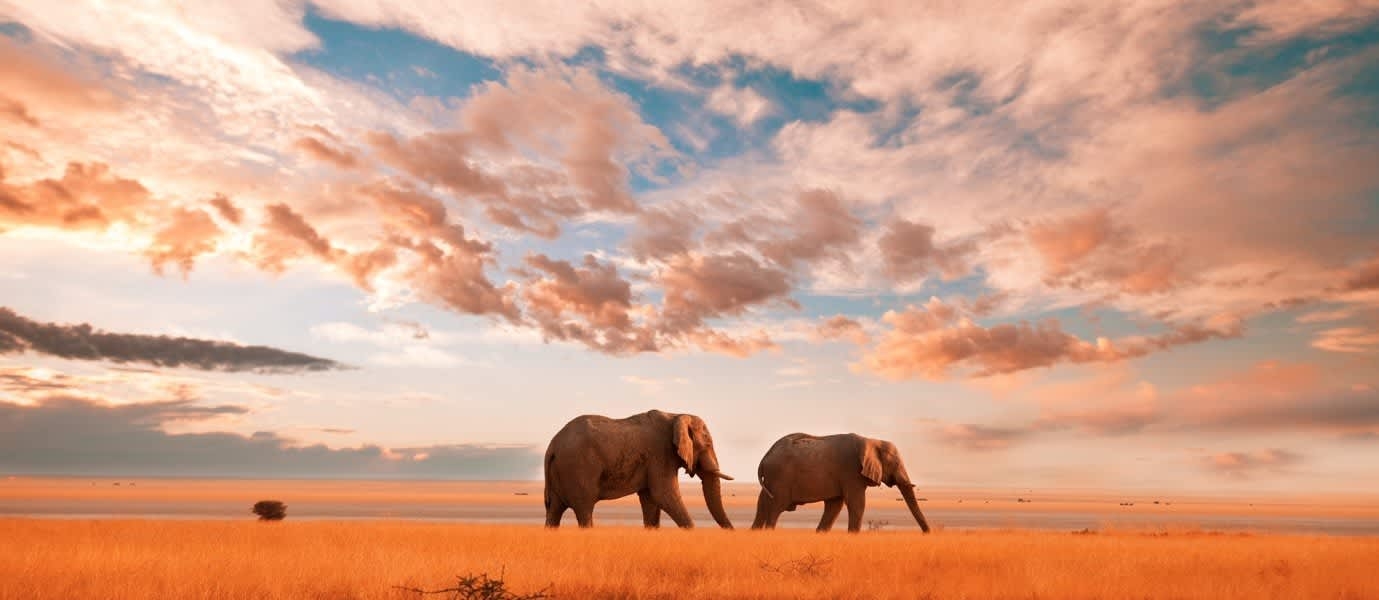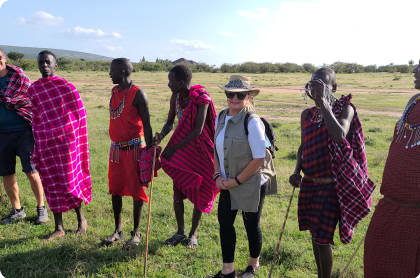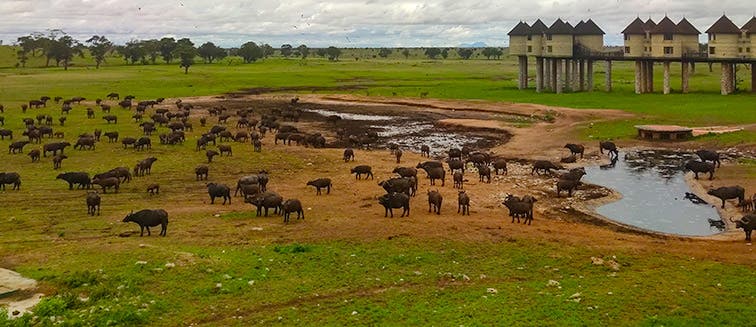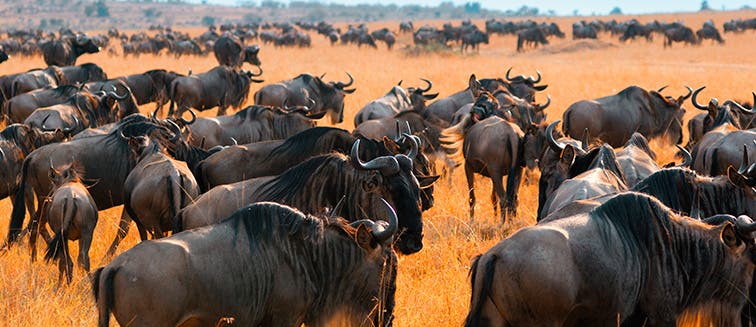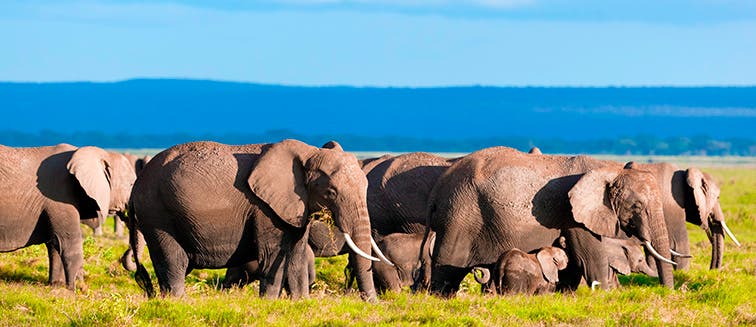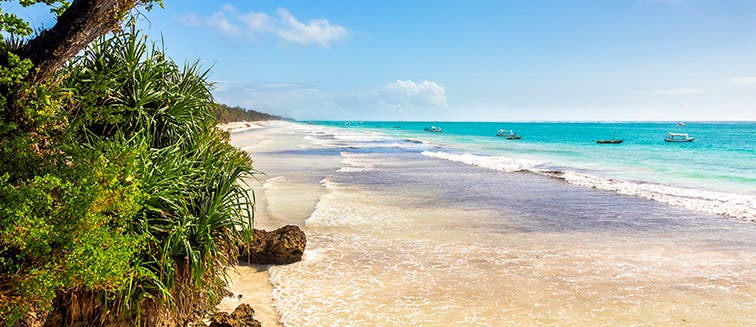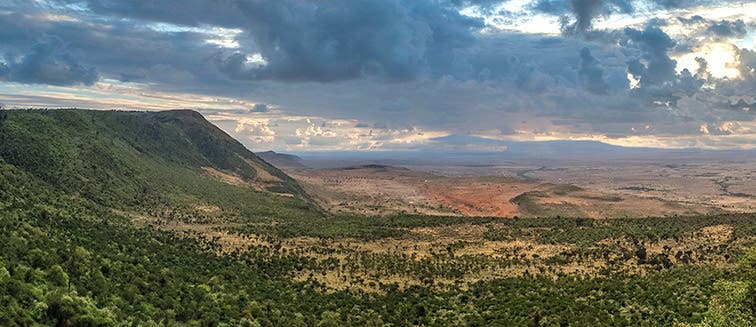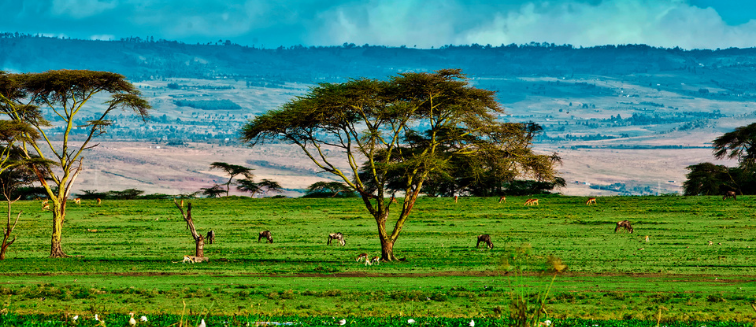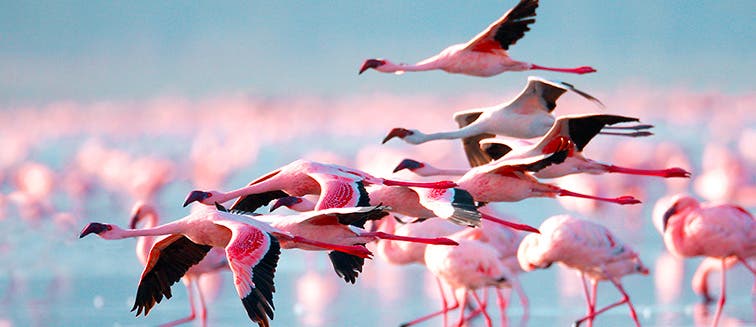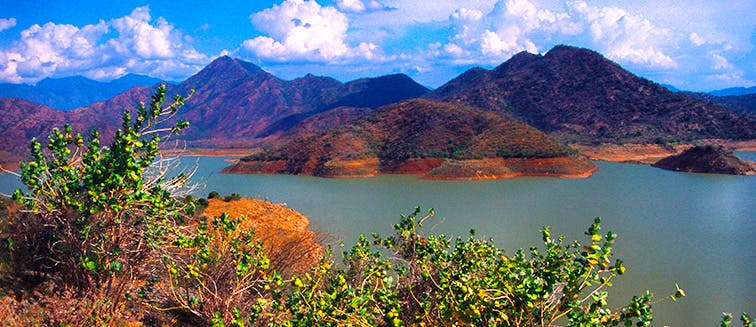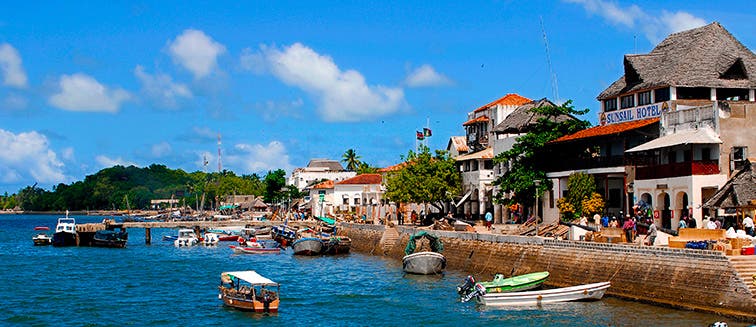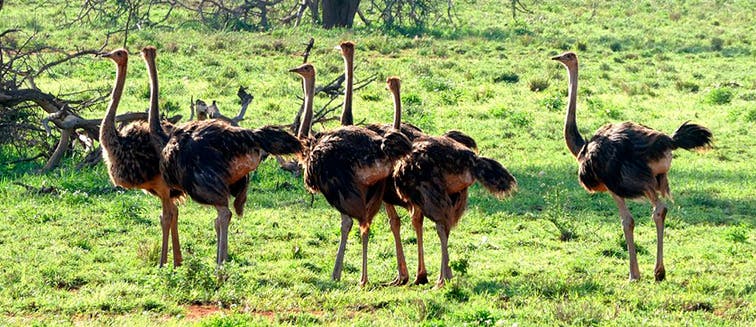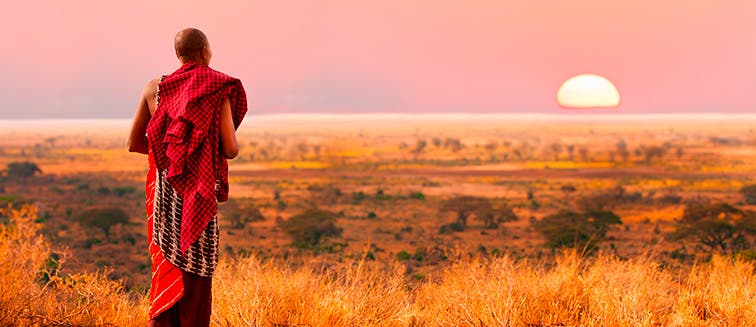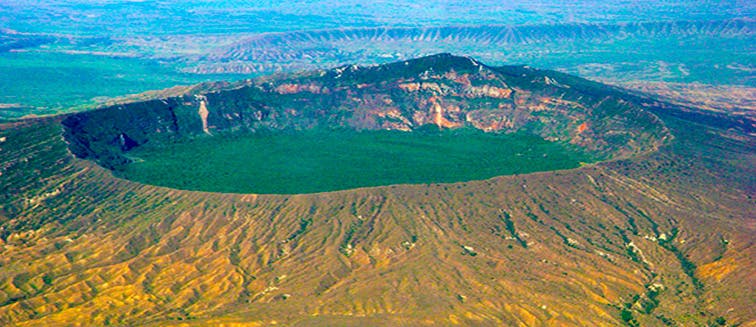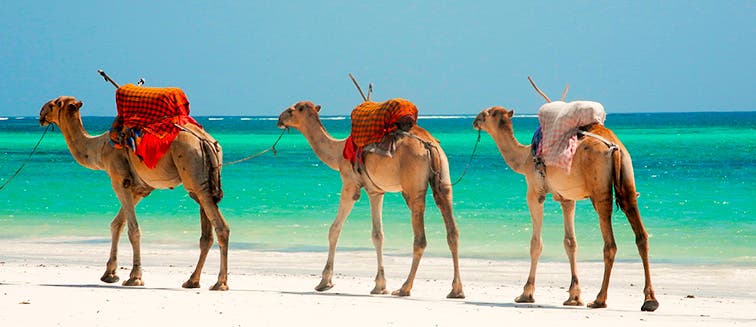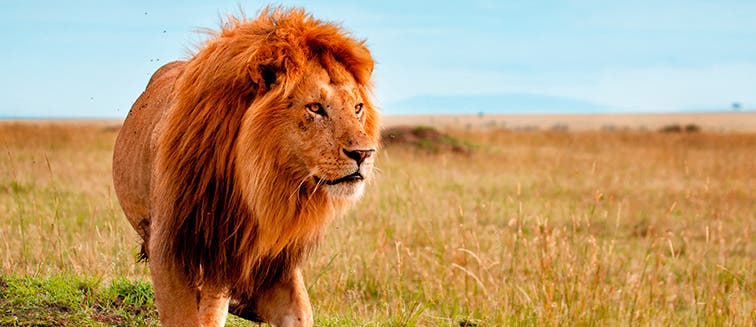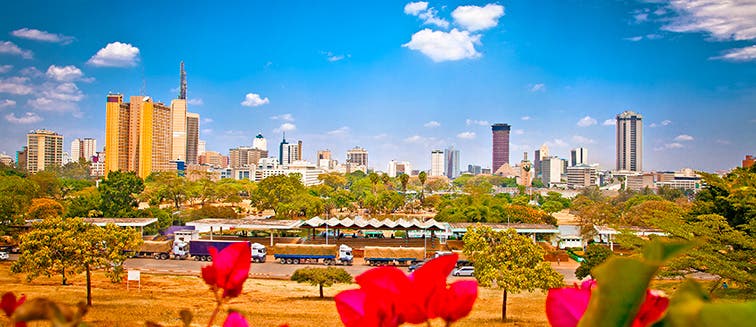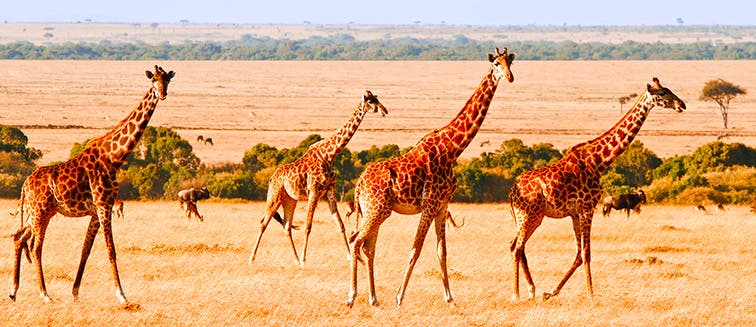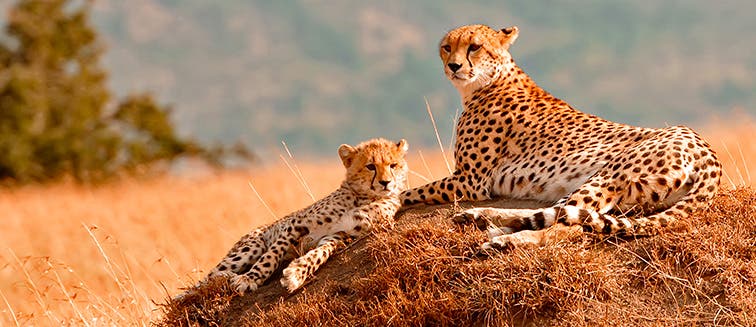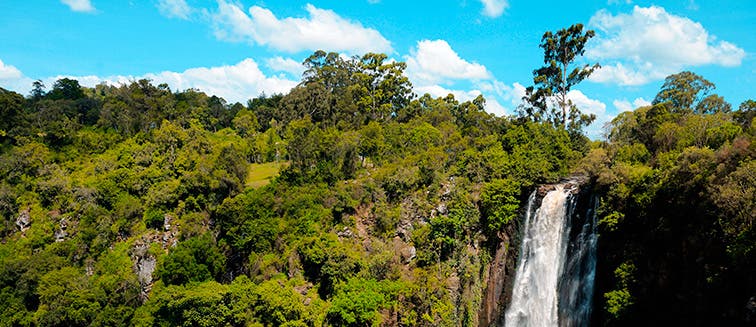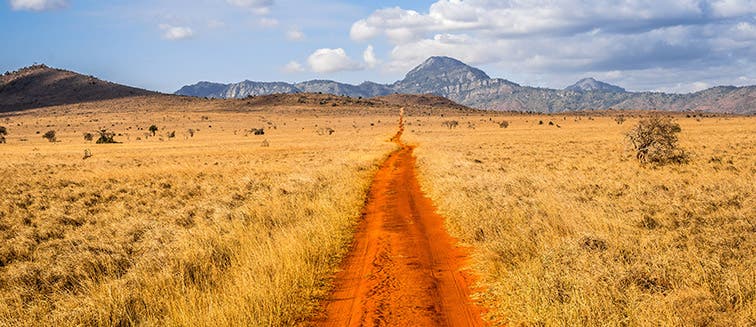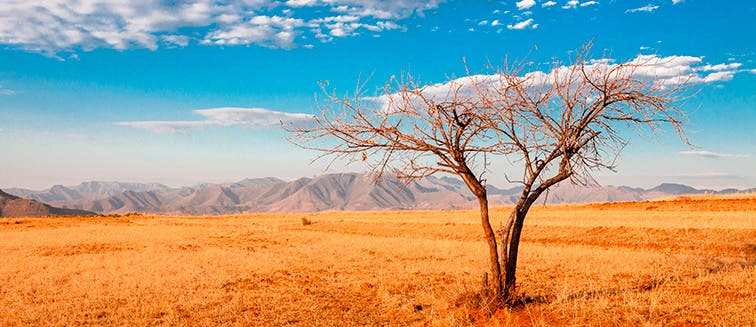The quintessential African safari destination, Kenya tour packages pack a punch when it comes to wildlife and national parks. Envisage vast savannahs, colorful cities and authentic village communities, whose culture and traditions have survived modernity.
An east African nation, Kenya is bordered by Tanzania, South Sudan, Uganda, Somalia, and Ethiopia, and sits on the warm waters of the Indian Ocean.
The capital city is vibrant Nairobi and other urban centers include Mombasa and Kisumu City, although all-inclusive Kenya vacations are more likely to focus on the amazing national parks and the exotic wildlife that inhabit these vast lands.
From the astonishing Great Migration to the elephant herds of Amboseli in the shadow of Mount Kilimanjaro, there are countless safari opportunities to ignite the imagination of all travelers. A safari tour in Kenya is incomplete without contemplating the abundant wildlife of the Maasai Mara Reserve, home to the iconic Big Five and the Maasai people, known for their distinct dress and customs. Many varied ethnic groups live in the country, making a tour of Kenya a journey through different cultures and their unique traditions and heritage.
Kenya History
With such a diverse population it is fascinating to delve into the story of Kenya’s past. Before the impact of colonialism in the 19th-century, Kenya was settled by north African communities and in the 1st-century Arabs and Persians also arrived on the Kenyan coast and forged settlements, due to its proximity to the Arabian Peninsula.
The Swahili language, one of the most common languages you’ll hear on a Kenya travel, was developed as a mix of the indigenous Bantu and Arabic languages as a lingua franca to help communications between both groups.
Cities such as Mombasa and the neighboring island of Zanzibar were established in the following centuries, the former of which became a major center of trade in the region. Islam had risen to be the major religion in Kenya at this time and the country remained under the control of the Islamic Sultans until British colonization in the late 19th-century.
In this period the East African Protectorate was established and British settlers began to arrive in the country, along with many Indian settlers who came to construct the Uganda Railway. Many of the ancestors of these settlers still live in Kenya today.
It was not until 1920 that Kenya was officially named, in honor of its tallest mountain. Many British and Europeans made their lives in the highlands of the country. Think of Karen Blixen’s Out of Africa, as an example. You can even visit the Karen Blixen Museum in Nairobi on a package vacation to Kenya!
In 1952, members of various different tribes came together as a unified force to fight against British rule in an organization called the Mau Mau. The uprising finally defeated the British after 7 years of struggle. 1963 was the year that Kenya finally gained independence and a year later the first Kenyan president, Jomo Kenyatta, was elected.
Nature in Kenya
Nature is at the heart of any Kenya tour, from the warm waters of the mythical Indian Ocean to the wild savannahs, central highlands, and Great Rift Valley. Kenya plays host to a diverse array of landscapes and wildlife. Its tropical climate ensures plenty of year-round sunshine, making it the perfect choice for both a safari experience or a beach break in the fantastic Diani Beach.
There are a number of must-see natural wonders if you take Kenyan travel. Lake Nakuru and Lake Naivasha are up there with the best when it comes to bird-spotting and wildlife. Located in the mighty Rift Valley, it attracts huge flocks of flamingos and herds of rhinos who drink from its glistening waters. It’s a highlight of any Kenya safari!
The Maasai Mara Reserve is perhaps the best known natural wonder in the country, famous for hosting the annual Great Migration, one of the New Seven Wonders of the World where great herds of blue wildebeest and zebras cross the Mara River.
It’s also one of the best destinations in the country to spot the elusive Big Five animals! Another hotspot for safaris is in Amboseli, one of the best places in the entire world to see wild elephants. Sparse vegetation makes it easier to spot wildlife and the shadow of Mount Kilimanjaro makes a safari in Amboseli an atmospheric and unforgettable experience.
For something a little different, one of Kenya’s hidden gems is the Lamu Archipelago, idyllic islands in the Indian Ocean home to countless paradise beaches. It is one of the most evocative destinations in the country, with an untouched coastline and charming little traditional villages.
Culture in Kenya
The first thing to understand about Kenyan culture is that there is not one homogenous culture, but instead, a rich tapestry of different traditions owing to the 13 primary ethnic groups that make up the country’s demographic. On a vacation to Kenya you can expect to experience many different types of traditional dress, beliefs, folklore and, of course, soul-stirring music as you travel around the country. Much of the population follow Christianity, so Easter and Christmas time are filled with celebrations.
The official languages are English and Swahili, and almost everyone you meet in the country will go out of their way to welcome you and provide excellent hospitality. Even in the most isolated communities, such as those of the Maasai, locals will welcome visitors into their homes with open arms and provide tea and food, despite having very little themselves.
It is considered impolite to turn down these generous displays of hospitality. There is a strong link, in Kenya, between the people and the land and a long tradition of agriculture, symbolized by the green stripe in the country’s national flag.
Walk with the giants of the animal kingdom and open your eyes to the untouched landscapes and kind-hearted people of Kenya. A tour of Kenya offers culture, wildlife, and nature into a heady concoction, making for an unforgettable journey.
